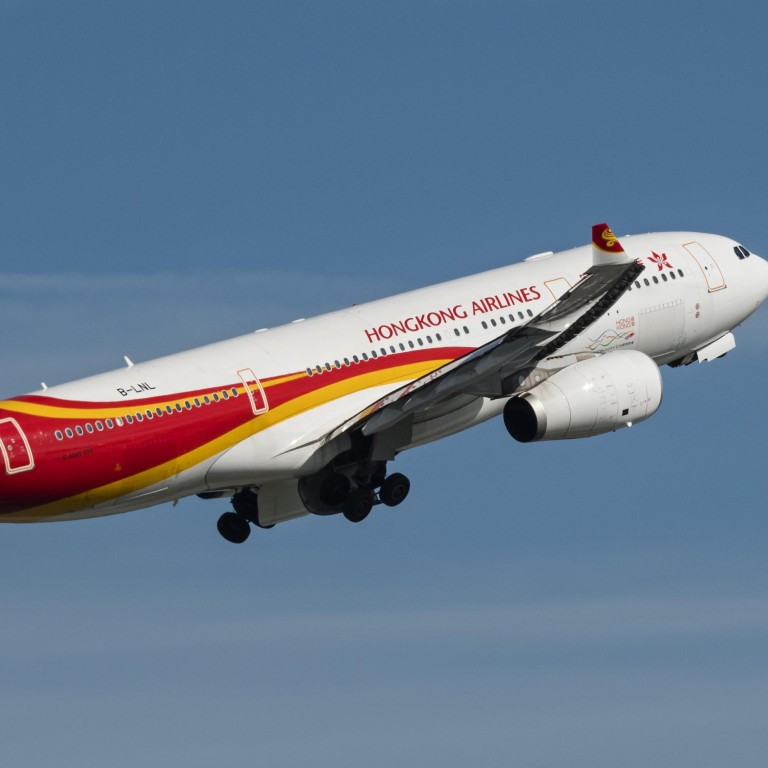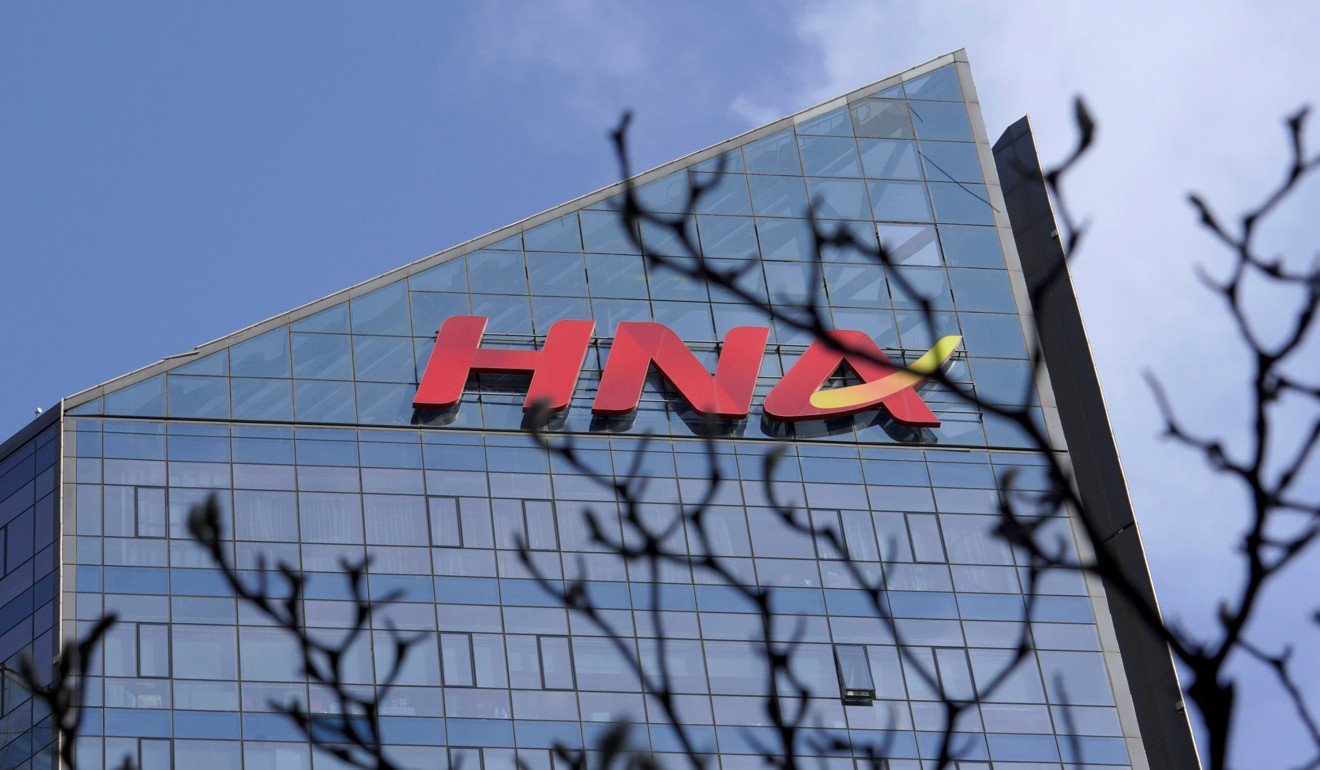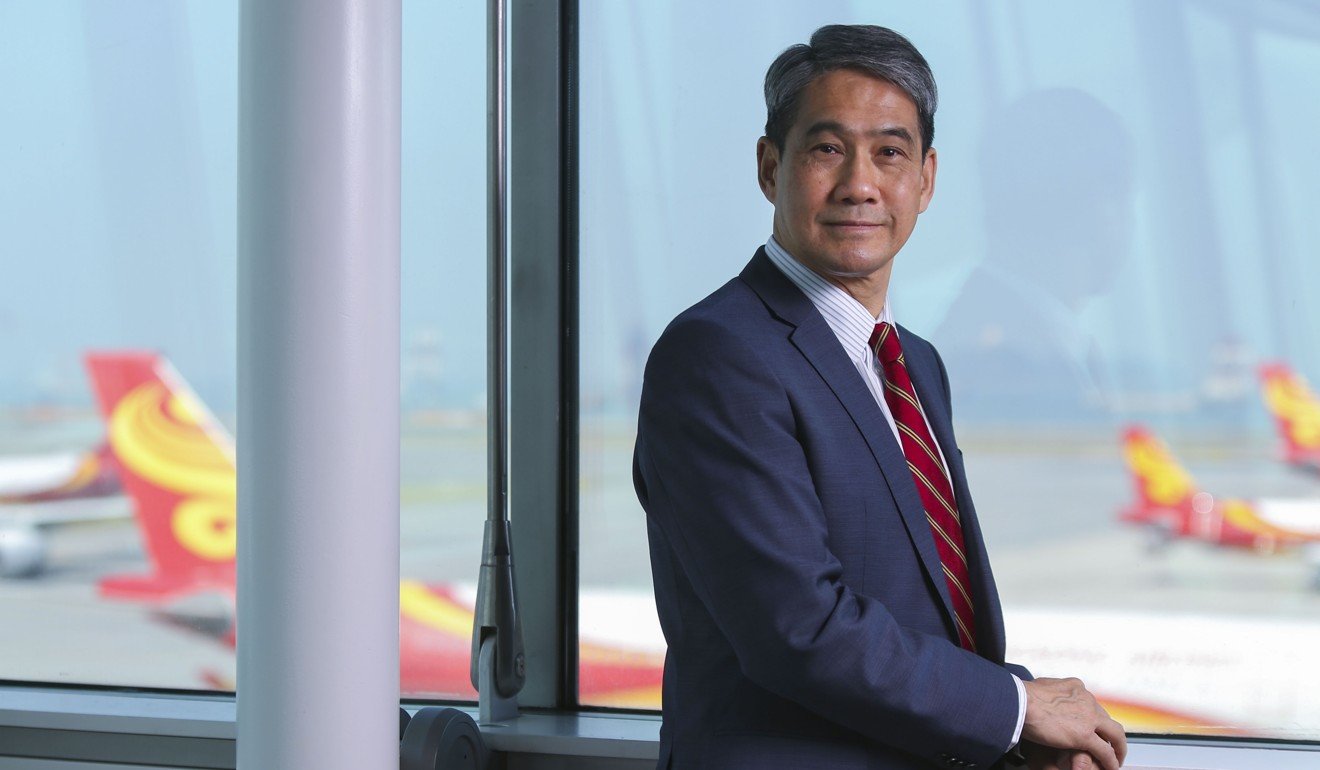
Exodus of top brass from Hong Kong Airlines even bigger than first thought
- At least six directors have resigned from the HNA Group-controlled carrier since July
The recent exodus of top brass from Hong Kong’s third-biggest airline is even bigger than first thought, after a string of boardroom departures which cost it both of its co-chairmen and several directors, it has emerged.
At least six directors have resigned from Hong Kong Airlines since July, according to company records, along with its finance chief.
The carrier is controlled by China’s HNA Group, whose financial problems have directly and indirectly affected its airlines. The conglomerate has been forced to seek buyers for all or part of its stakes in the carrier, and its sister airline Hong Kong Express, after a US$50 billion spending spree that racked up a lot of debt.
According to a company search on Wednesday, Hong Kong Airlines’ co-chairman Mung Kin-keung resigned on November 23. Other recently departed board members include non-executive directors Re Qiongba and Cui Yeng Xu, who had held their posts since 2014 and resigned this year, in July and September respectively.
Zhong Guosong, an HNA director and chairman of Hong Kong Express, also left the airline’s board, on August 21.

Tang, a former city police chief who resigned on November 20, cited a desire to focus on public service as reason for leaving.
Hong Kong Airlines is privately held and does not need to disclose company information or financial statements.
After the exodus, former vice-president and chief marketing officer at Hainan Airlines Hou Wei is now the carrier’s chairman, leading a slimmed-down management team. Ben Wong Ching-ho, the airline’s former chief operating officer, was appointed vice-president.

It was unclear if a replacement finance chief had been appointed. The management team was as large as eight executives before the resignations and reshuffles.
Will Horton, a Hong Kong-based independent aviation analyst, said the recent resignations were of leaders who came to the company from different backgrounds, rather than being of one faction.
“This isn’t a clean sweep of chums,” he said.
The carrier has challenged Cathay Pacific’s dominance of long-haul routes in recent years by expanding to North America. But mounting losses at the company and HNA have forced it to shrink its ambitions.
The Post reported previously that the airline had pushed back the delivery date for new Airbus A350 and A330 aircraft, and paused the expansion of its network to London and New York, previously targeted for the end of 2018. With 38 passenger planes, it is some way off its plan to grow its all-Airbus fleet to 50 by the end of this year, as originally targeted.
A spokeswoman for industry regulator, the Civil Aviation Department, said the personnel changes at the carrier did not need its approval. Appointments by airlines in specific areas such as flight operations, ground operations, safety management and crew training do need its go ahead.
Hong Kong Airlines has been contacted for comment.

